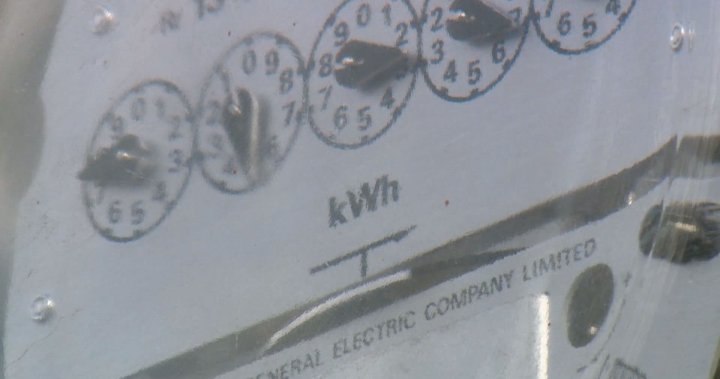
It’s a line item on Calgarians’ electricity bills that has grown significantly, and that city council wants to look at more deeply in an effort to find any relief for those struggling to pay them.
On Tuesday, city council unanimously approved a comprehensive review of the local access fee on electricity bills, including its history, alternatives and impacts to any potential changes to its formula on the city’s bottom line.
Calgary mayor Jyoti Gondek said changes must be made as Calgarians grapple with affordability concerns.
“We should have known long ago that we needed to be ready for something like this and instead we chose to go with the status quo. Well, I’m not very happy with that,” Gondek said.
“Status quo isn’t working, and we need to be looking at other options.”
The local access fee is charged to utilities in lieu of a property tax to operate electricity infrastructure on municipal lands.
In Calgary, that fee is directly linked to the regulated rate of electricity in Alberta, which has risen by 246 per cent since January 2021.
According to EnergyRates.ca, Calgarians will pay an average of $260 this year on local access fees, 250 per cent more than the $80 Edmontonians pay as the fee is a flat rate in that city.
A graphic showing the regulated rate option in comparison with Calgary’s consumer price index.
City of Calgary
“So, in a short amount of time, we’ve seen a 10-fold increase,” said Joel MacDonald with EnergyRates.ca. “It may not be advantageous to tie a local access fee to something that’s so incredibly volatile.”
City administration had originally planned to bring back alternatives and potential changes to the fee structure for council approval sometime next year, but city councillors pushed to move up that report to December.
That report is expected to include what a change to the local access fee would look like in the ” current volatile environment,” what the budget implications would be to the City of Calgary, and what the positive outcomes of a change would be for Calgarians.
Council heard that any potential changes to the fee structure would take between 18 months and two years to go through the regulatory process through the Alberta Utilities Commission.
“That is a long ways out and I don’t think that is something Calgarians would stomach well,” Ward 11 Coun. Kourtney Penner said. “We need to work with our colleagues to expedite this process.”
In the meantime, council also requested a report into options to provide an affordability program for Calgarians, which is expected to be delivered to councillors during budget deliberations in November.
“To any Calgarians that are having a hard time making the budget line up at the end of the month, I want you to know your city council hears you,” Ward 12 Coun. Evan Spencer said. “We’re going to do what we can with the levers in our hands.”
A mid-year performance review last week revealed city officials are estimating local access fees will bring in an additional $100 million in revenue at the end of the year.
According to the city, excess local access fees are required to be moved into the capital reserve for infrastructure projects.
City council will get a briefing next month on the history of the local access fee, which will include a history on excess local access fee revenue and an overview on how that money has been spent since 2008.
Council heard that around 37 per cent of the revenue from the local access fee comes from residents, with the rest coming from businesses.
Ward 10 Coun. Andre Chabot cautioned against any changes that could result in a bigger shift of who pays the bulk of the fees.
“Ultimately if we’re looking at remaining somewhat revenue neutral, there will need to be a shift in who we collect the fees from,” Chabot said.
“Part of the potential unintended consequences is that we may shift that tax burden on the people we’re trying to help. We have to be very cautious on how we change our methodology.”
Chabot said the province controls how the regulated rate is calculated and could make legislative changes to ensure Calgarians don’t face “the same level of volatility that we’ve experienced in the last two years.”
MacDonald said it is “imperative” that city council takes action on the fee amidst affordability concerns across the board.
“The City of Calgary is the steward for homeowners, and they should strive to set up a billing mechanism with cost certainty,” MacDonald said.
“You’re never going to get it perfect, but seeing a 10-fold increase in less than 10 years just isn’t palatable for anyone’s budget.”
© 2023 Global News, a division of Corus Entertainment Inc.














